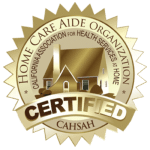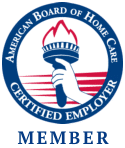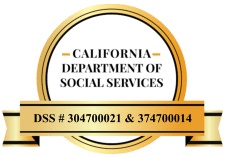If you are in charge of your aging parent’s elderly care plan, you will need to watch out for a condition called dry mouth. It’s estimated that many cases of dry mouth in seniors are undiagnosed and therefore untreated. The condition, in which the salivary glands don’t produce enough saliva for eating and speaking, can have several causes and therefore, several different treatments.
Here are 7 Frequently Asked Questions about Dry Mouth that family caregivers need to understand:
Q: What are typical symptoms of dry mouth?
A: Seniors describe dry mouth as feeling like there is a gritty or sticky feeling. When they do produce saliva, it can feel thick or stringy. Other symptoms include cracked lips, ill-fitting dentures, bad breath and a tickle in the throat.
Q: What causes dry mouth?
A: Most of the dry mouth cases in seniors are linked to certain medicines they take for other health conditions, such as high blood pressure or overactive bladder. Dry mouth can also be a symptom of other health conditions like diabetes or an autoimmune illness.
Q: Why is dry mouth a cause for concern in seniors?
A: Dry mouth can interfere with normal eating and keeping the mouth in a healthy state. Dry mouth can lead to an increase in mouth sores, tooth decay, and a reduced appetite. In extreme cases, dry mouth can lead to oral infections and even malnutrition as seniors avoid proper hygiene and struggle to do typical activities like eating.
Q: How is dry mouth treated?
A: If the cause of dry mouth is because of a certain medicine, doctors can look at the option of reducing the dosage or switching to another. If the dry mouth is due to another condition, there are some medicines that can stimulate the salivary glands. Doctors and dentists should work closely with the senior and anyone involved in their elderly care to outline a treatment plan.
Q: How can family members help seniors with dry mouth?
A: There are lots of things that family members and senior care aides can do to help the elderly deal with dry mouth symptoms. Tips include sipping water throughout the day, sleeping with a humidifier, sucking on mints or lozenges, and avoiding triggering activities like smoking or eating spicy food.
Q: What about oral moisturizers?
A: Seniors with dry mouth often find relief by using oral moisturizers that stimulate saliva. These come in the forms of sprays, gels or rinses, and they can stimulate the glands to produce some saliva or thin out any that gets produced.
Q: Why is dental hygiene so important with dry mouth?
A: Dry mouth can trigger gum disease, tooth decay, and mouth sores, so dental hygiene is very important. Seniors should visit the dentist regularly, brush twice per day with a fluoride toothpaste, use a fluoride rinse and clean their dentures well.
It’s important to set up an elderly care plan that not only helps seniors relieve the symptoms of dry mouth but also gets to the heart of what is causing the condition in the first place. Family caregivers need to understand that the decreased saliva that causes dry mouth is more than just a small nuisance. Instead, it can have a significant impact on the health and wellness of an aging loved-one.
If you or an aging loved one are considering elder care in Laguna Beach, CA, please contact the caring staff at Canaan Home Care today!
1-844-CANAAN-1 (1-844-226-2261)
Sources:
http://www.mayoclinic.org/diseases-conditions/dry-mouth/home/ovc-20318136
- Follow These Four Steps and Create a Respite Plan - December 18, 2020
- End of the Year Holidays Can Cause Aging Veterans to Feel Lonely, but What About Home Care? - December 11, 2020
- Is Your Senior Battling Edema in Her Legs? - December 3, 2020




